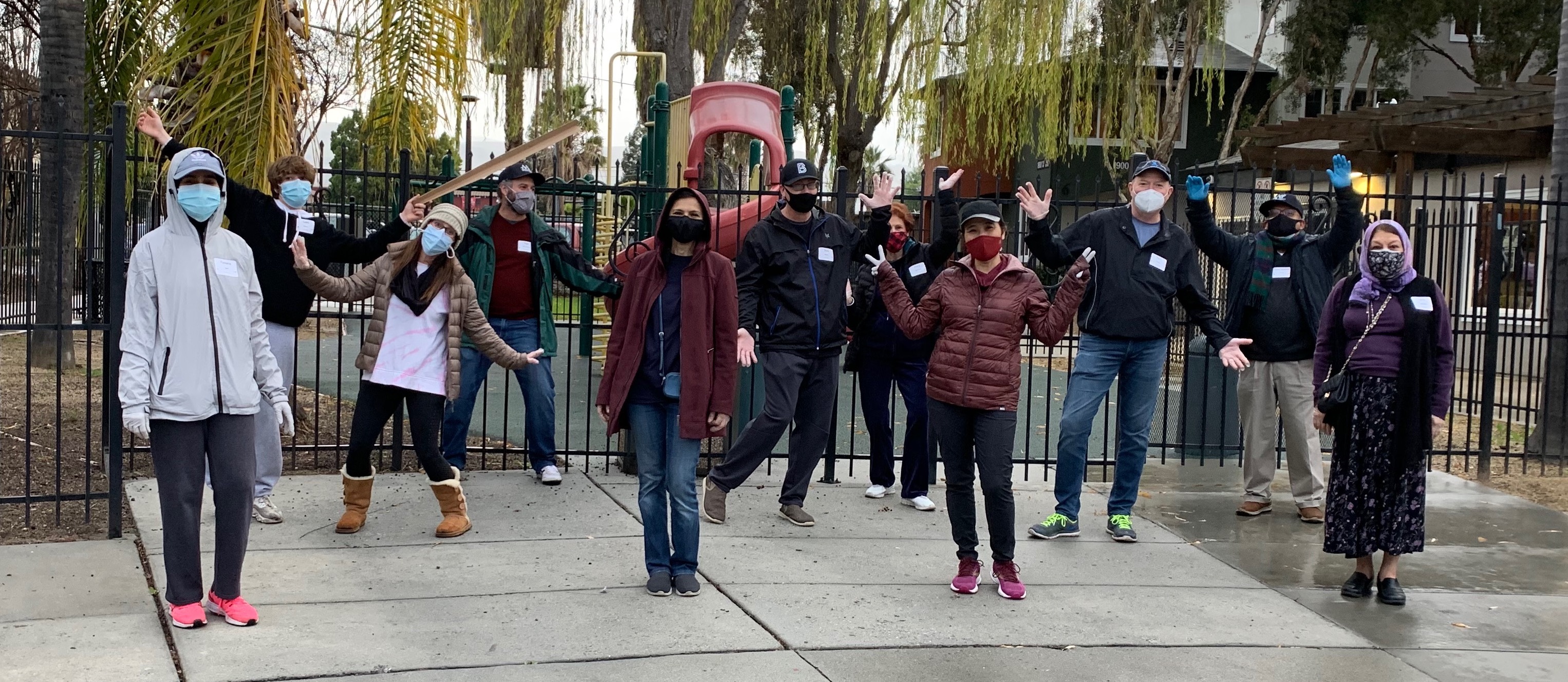You are here
As our compassion event planning meeting ends at the synagogue, the rabbi smiles and says to all gathered, “I so thoroughly enjoy meeting with you guys. In fact, every time I leave these meetings together, I'm so energized and upbeat. It's like I'm high for two days! I’m not kidding!” Then the rabbi pauses, frowns, and says rather pensively, “But you know, when I leave meetings from my own community, it’s not usually that way.”
I am astounded not only by the rabbi’s transparency, but also by his vulnerability to reveal something so deeply personal after collaborating in compassion with the others for only a few months. After a brief moment of silence, the mosque president says emphatically, “Same here rabbi.” Then the church pastor quickly admits, “Me too.” Whoa.
Something awesome happens when Jews, Christians, and Muslims unite to serve our neighbors in need. I have searched long and hard for a word to describe it, and I’ve listened to hundreds like the rabbi comment on the exhilaration they experience. Exhilaration is defined as a feeling of excitement, happiness, or elation. Its synonyms include joy, delight, jubilation, even ecstasy—a term used by cultural anthropologists to describe ecstatic religious experiences, and slang for a drug used to “get high.”
Social scientists have identified three components that produce happiness and joy. Ironically, money is not one of them. If you are living in poverty without food and shelter, then yes, enough money to pay for basic needs will lead to an increase in happiness. However, once basic needs are met, an increase in wealth does not correspondingly lead to an increase in happiness. Instead, social scientists state that happiness comes from being:
- in community (not being isolated and alone)
- engaged in a cause greater than self (like helping neighbors in need)
- in “the flow,” i.e., a satisfying state of mind we all experience when using our [God-given] talents and skills at which we are exceptionally good, but most others are not. Being in “the flow” is often so enjoyable that we lose track of time when doing it. The same activity for others is hard work, but to us, it’s fun.
I will never forget the hospitality I’ve enjoyed in humble villages of rural India and Mindanao, Philippines. While I grew up surrounded by all the wealth of Silicon Valley, it seemed clear to me that most of my hosts abroad were much happier than my Silicon Valley neighbors.
In 1985, I studied at a Gandhian university in Gujarat, India. I once strayed into an urban slum on the outskirts of Ahmedabad. I expected to be approached by beggars, but instead I was invited into numerous shacks for a cup of tea! One elderly man was so happy I accepted his invitation that he put on a mini concert for the whole neighborhood with his 1-string guitar. How can rickshaw pullers in a slum experience more joy than billionaires in fine homes? Social scientists have an answer. Interestingly, the prophets provided similar answers centuries ago, albeit in different language. Being in community and providing for neighbors in need are foundational commandments in all three of our traditions, and obedience to them can bring us an immense amount of joy.
When speaking at a mosque some time ago, I asked all gathered, “Do you think God asks us to serve the poor primarily for their benefit, or ours?” Without delay, all quickly concurred, “Primarily for OUR benefit!” I agree! And yet with the rabbi I frown because I don’t think most in my Christian community would come to the same conclusion so quickly.
When I shared the rabbi’s comment with one of our Muslim compassion event co-leaders, she said, “He’s only high for two days? I’m high for two weeks after AAi compassion events!” In light of these responses, another rabbi once quipped that AAi compassion events might be the solution to the opioid crisis!
Clearly, people don’t need to use drugs to feel exhilarated or "high". We need to cooperate with God’s divine agenda for humanity by serving the poor, suffering, and marginalized. Such cooperation can be deeply rewarding because we are personally making a beautiful difference in the lives of precious people. However, I believe AAi compassion events multiply the joyful effects of serving the poor, suffering, and marginalized because we are cooperating with the divine agenda both in community and across religious lines that have divided the family of Abraham for centuries. Every AAi compassion event shows all present that peaceful coexistence between Jews, Christians, and Muslims is not a naïve and distant dream, but a growing and present reality—here and now. In other words, our engagement in a cause greater than self is not just about compassionate service to the poor, but also about communities collaborating in ways that would delight our ancestor, patriarch, and archetype of our faith: Abraham عَلَيْهِ ٱلسَّلَامُ
Obedience and submission to God’s divine agenda for humanity satisfy our souls much more deeply than any amount of wealth ever could. This cause to which all are called is not only far greater than self, it is most holy and sacred work. When performed in community with other children of Abraham, we should not be surprised that it results in holy exhilaration.

Theme by Danetsoft and Danang Probo Sayekti inspired by Maksimer



